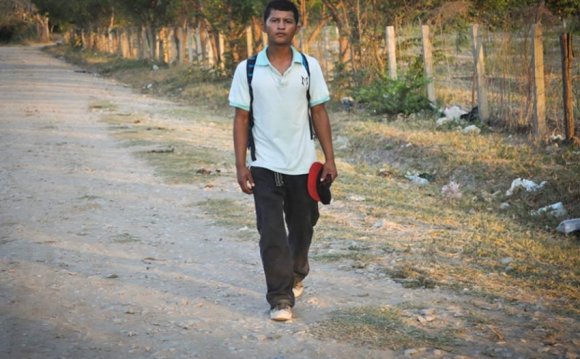
Walking aids for Senior Central America
 Age Range: Grades 7-9
Age Range: Grades 7-9
Topic: Social Studies & Language Arts
Collaborative Learning and Problem-solving
Hunger affects populations both globally and domestically. Students should know the hurdles to meals protection and great amounts of diet many folks face every day. Motivating pupils to locate solutions to these issues heightens their particular awareness of the difficulties, and makes it possible for them to comprehend that people in a community enables both in tangible techniques. This activity activates individuals in innovative issue solving though a time-limited means of creating solutions to various hunger-related dilemmas. Small categories of pupils circulate across the area and write down methods to each of the hunger hurdles.
down load
Using Decimals
Age Range: Grades 4-6
Subject: Math
Addition & Subtraction of Decimals, Important Thinking
Pupils will practice inclusion and subtraction of decimals while considering the tiny domestic budgets of men and women in developing countries.
The Hunger Tree
Age Groups: Grades 4-6
Topics: Personal Studies, Language Arts/English
Crucial Thinking, Making Connections, Visualisation of Troubles, Collaborative Learning
This activity utilizes the image of a tree to aid pupils understand the problem of “hunger” that will seem overwhelming and impractical to change to start with. This Hunger Tree activity helps young adults think although problem and just why it takes place. They also think together about actions that can be taken to help reduce the problem of hunger.
The Millennium Developing Goals
Age Range: Grades 7-9
Subjects: Personal Studies
Critiical Thinking, Collaborative Learning
Eradicating hunger, area of the MDG No.1, is key to development. While folks are hungry, all the development tasks are thwarted. The hungry can focus little except that their after that meal. Hungry mothers give birth to hungry kiddies, just who, when they reside for enough time, grow into hungry grownups.
 Web of Connections
Web of Connections
Age Range: Grades 7-9
Subjects: Social Studies
Critiical Thinking, Collaborative Learning, and Problem-solving
This activity can help foster an awareness of appetite into the context of other social problems. After playing this activity, group people should certainly more effectively talk about the ways for which appetite is connected to other dilemmas on the planet that also impact the plight of the in impoverishment. Making use of a ball of string and cards that represent these various dilemmas, team users will construct a “web” of connections between your given topics.
In which on earth - Africa
Age Range: Grades 5-7
Topic: Personal Studies
Map Skills, Coordinates, General and Absolute Place, Crucial Thinking, Analysis, Writing to Inform
This study task is part of a geography-themed series: "in which on the planet." The activities are designed to be covered over some classes. The result is going to be knowledge of appetite issues in a specific country, and a knowledge that appetite is a worldwide problem which affects countries in all aspects of our planet.
down load
In which in the field - South America
Age Groups: Grades 5-7
Topic: Social Studies
Map Skills, Coordinates, General and Absolute Area, Vital Thinking, Research, Composing to Inform
This research task is a component of a geography-themed series: "Where in the World." Those activities are made to be covered over a number of classes. The outcome would be a knowledge of hunger problems in a particular country, including an understanding that hunger is a global issue which affects countries in all regions of our planet.
Through analysis and application of mapping skills, pupils will gain an awareness associated with dilemmas of appetite and poverty throughout the world, the strategies working to fight the consequences of these problems, together with attempts being designed to develop renewable solutions.
Where in the World - Asia
A Long Time: Grades 5-7Subject: Social Studies
Map Techniques, Coordinates, General and Absolute Location, Important Thinking, Research, Writing to see
This study task is part of a geography-themed series: "in which in the World." The activities are designed to be covered over a series of lessons. The end result will likely to be an understanding of appetite problems in a specific nation, in addition to an understanding that appetite is an international concern which affects countries in most regions of our planet.
In which on earth - Central America
Age Range: Grades 5-7Topic: Personal Studies
Map Techniques, Coordinates, Relative and Absolute Area, Important Thinking, Analysis, Writing to Inform
Just how'd that log in to my plate?
A Long Time: Grades 4-6, Years 10-12Subject: Social Studies
Research, Critical Thinking, Map Reading
Where does our meals originate from? And more importantly, why does it travel thus far to attain us? This task illustrates the interdependency of our worldwide meals system, and promotes crucial idea and representation. A visit to the grocery store is oftentimes a voyage throughout the world!
Introduction to Food Energy
Age Range: Grades 4-7, Ages 9-13Topic: Social Studies
Collaboration, Critical Thinking, Note Taking, Presentation Techniques
In teams, pupils will play the Food power online game, each group focusing on a specific objective. Each group is going to make a short presentation to your course explaining the objective these were assigned, concentrating on this requires each goal fulfills.
How to handle it about Malnutrition
Age Groups: Grades 7-9, Ages 11-14Topic: English
Research Techniques, Collaborative Learning, Presentational Techniques, Writing to describe
Students will create a mock United Nations seminar where they address the issue of kid malnutition and exactly how it pertains to children’s legal rights, predicated on study the Millennium Development Goals, and of the us Convention on the legal rights regarding the kid.
My Travelling Breakfast
A Long Time: Grades 4-6, Years 10-12Subject: Language Arts













